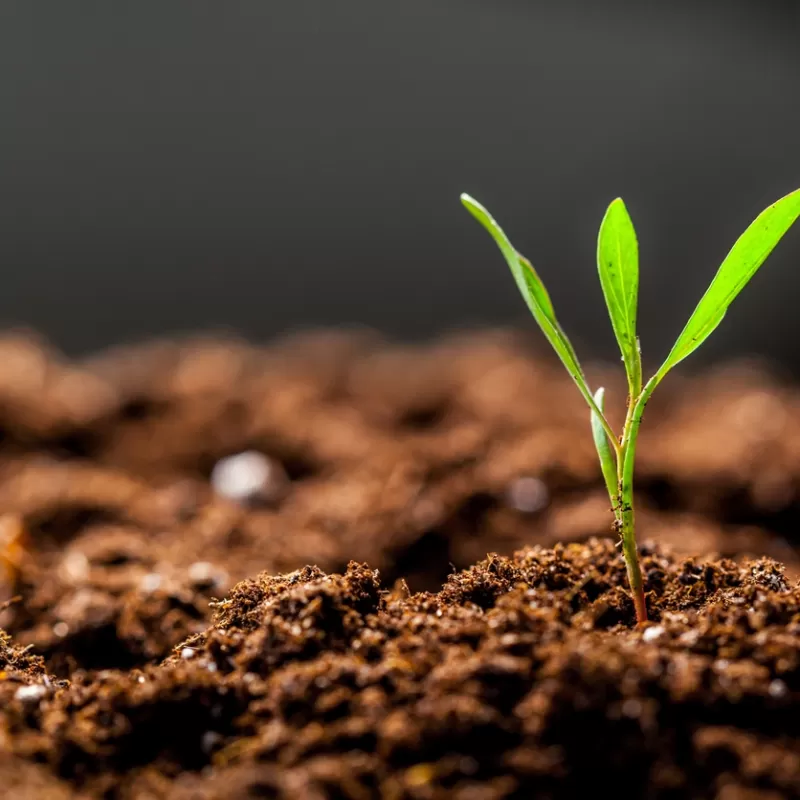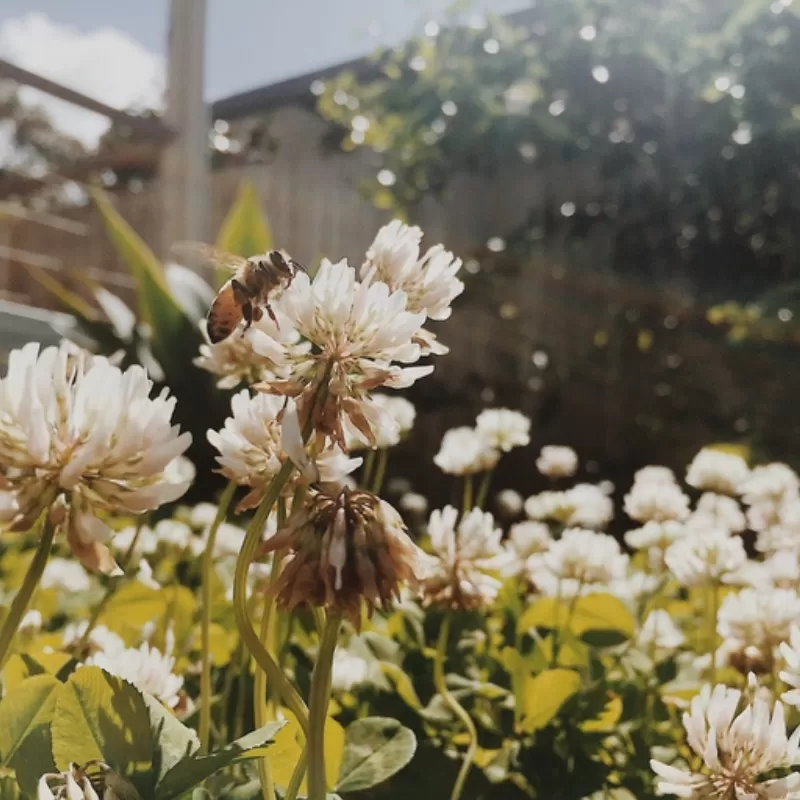How to Get Rid of Weeds Naturally
Weeding the garden feels like a never-ending job. As soon as you think the garden is looking beautiful and weed-free, another one pops up, and if you don’t like using too much chemical weedkiller, you need to figure out how to get rid of weeds naturally, which can be more time-consuming.
Here, we’ve outlined eight easy ways to help you get rid of weeds naturally without compromising the rest of your garden. Let’s go!
Natural Ways to Get Rid of Weeds
Whilst weeds are a pain from an aesthetic point of view, they can also be harmful to your plants. Runner weeds like bindweed can twine around plant shoots or canes, choking plants and preventing growth, and during periods of dry weather or drought, weeds can take vital water away from your plants, so it’s important to deal with weeds as soon as you spot them.
We would always encourage removing weeds naturally where possible, avoiding chemicals that are bad for the environment and can be dangerous for those with small children or pets.
1. Mulching
Mulch is a loose covering of material placed on the surface of the soil, such as wood chippings, bark, or garden compost. These are all organic forms of mulch that are biodegradable, helping keep your garden eco-friendly.
Mulching helps to suppress weed growth by blocking sunlight and preventing any weed seeds from germinating – we would recommend keeping the mulch at a minimum depth of around 10-15cm for the best effect.
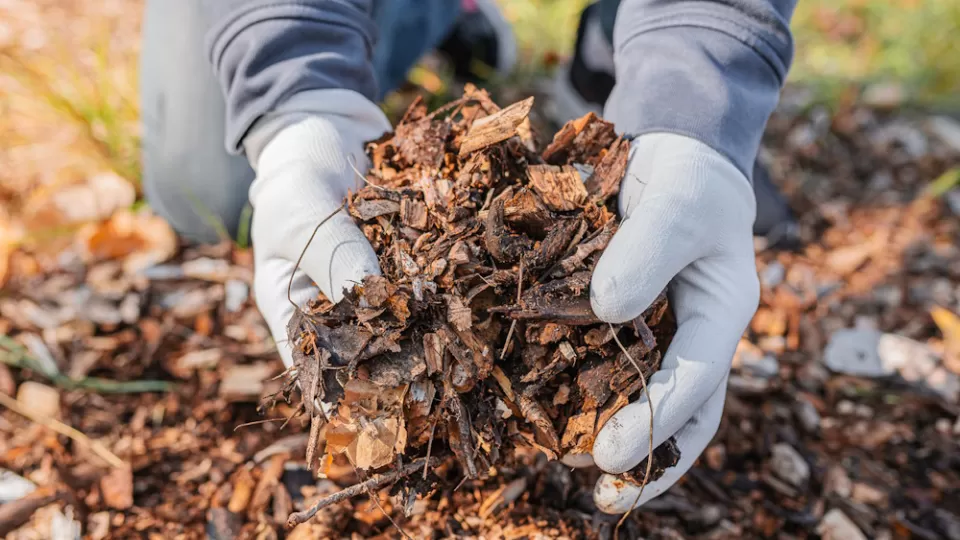
2. Hand weeding
Hand weeding is the simplest method to rid your garden of weeds naturally. It may be time-consuming, but it’s a great way to ensure you are removing the entire weed, roots and all.
Simply grab a weed fork, a dandelion weeder or just a good gardening glove and get to work! Try to get as deep into the soil as you can to ensure you’re getting to any taproots or other deep roots in the process – this will prevent regrowth.
3. Boiling water
Boiling water kills plant tissues by scalding them, so this is a cost-effective, easy and natural way to get rid of weeds. Boil some water in the kettle and pour carefully and directly over the weeds – it may take a few more applications for larger weeds.
If using this method, be careful not to burn yourself and do your best to avoid any other plants you don’t want the hot water to hit. We’d recommend this method for any weeds growing in cracks or between paving stones for this reason.
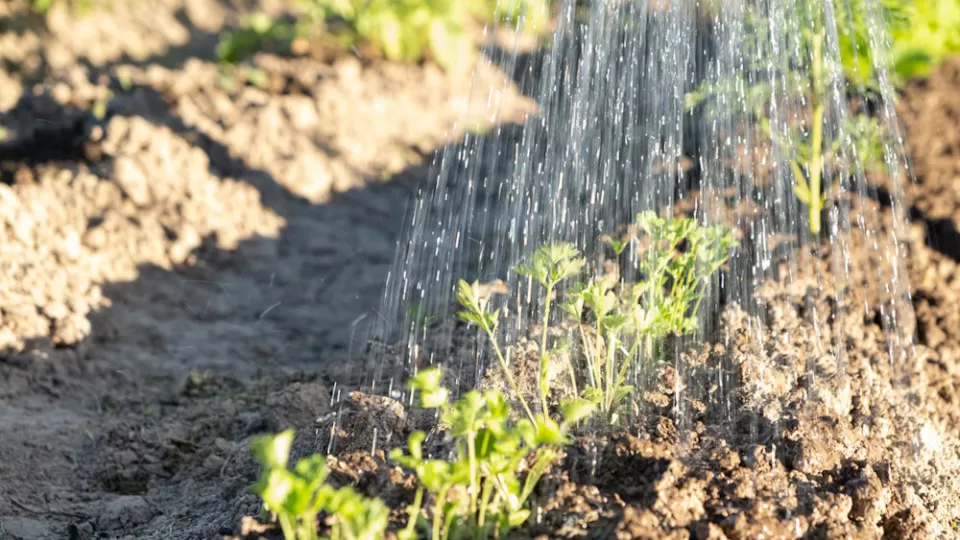
4. Vinegar
The acetic acid within vinegar helps to remove moisture from weeds, causing them to die. Add white vinegar to a spray bottle and apply directly to the weeds – similarly to boiling water, vinegar is a danger to all plants, so we’d advise covering up any plants you don’t want to spray accidentally.
Vinegar tends to work quickly and you’re likely to see the weeds brown up within 24 hours. However, this method tends to work best on newer weeds, so you will likely have to spray frequently to get rid of any with well-established roots.
5. Weed barrier
There are a variety of household items that can be used as a weed barrier around your plants, helping to smother existing weeds and prevent new ones from growing, as well as recycling your household waste.
Newspaper and cardboard can block sunlight and oxygen – just be sure to cut holes or leave space for your plants. You can even add a layer of mulch on top of the newspaper or cardboard for extra effect, and both of these products will eventually break down. If new weeds sprout through the barrier, try adding another layer.
6. Hoeing
Finally, an age-old practice that works just as well – hoeing! It’s as environmentally friendly as it is effective, and is great for removing big patches of weeds at once.
You should get the blade deep enough that you cut through the hypocotyl, but not so deep that the full plant is then transplanted elsewhere when removed. This method should be deployed regularly to prevent excess weed growth and is best done when the soil is slightly crumbly and dry on the surface. Just be mindful of using this technique to close to other plants!
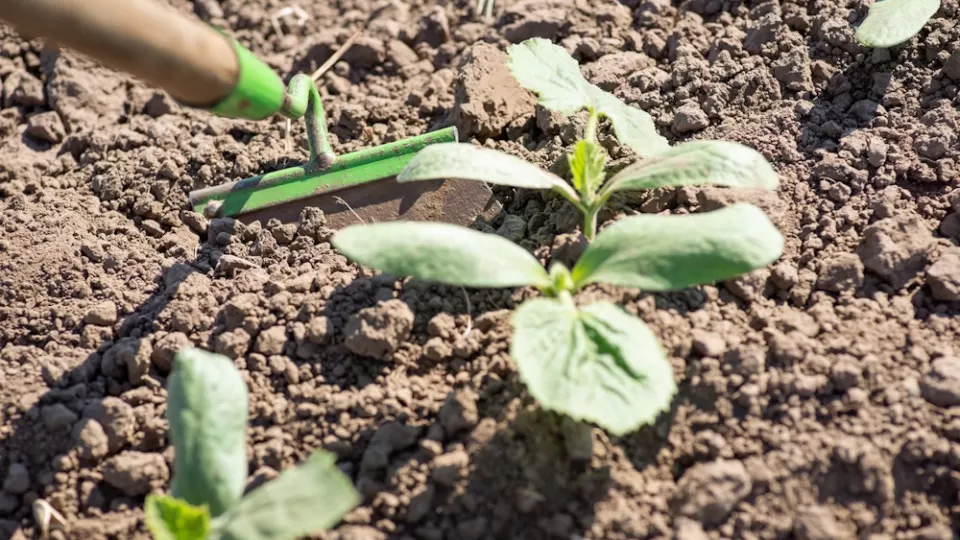
We hope these tips help you with how to get rid of weeds naturally and in a safe way that favours your garden and the environment. We would always advise mulching your beds to prevent weed build-up in the first place, but our preferred method of removing existing weeds is good old hand-weeding!
For more gardening tips, such as our ways to save water in the garden, take a look through our latest blogs. Don't forget to follow us on Instagram and Facebook to keep up to date with our latest growing adventures in the Irrigatia garden.

